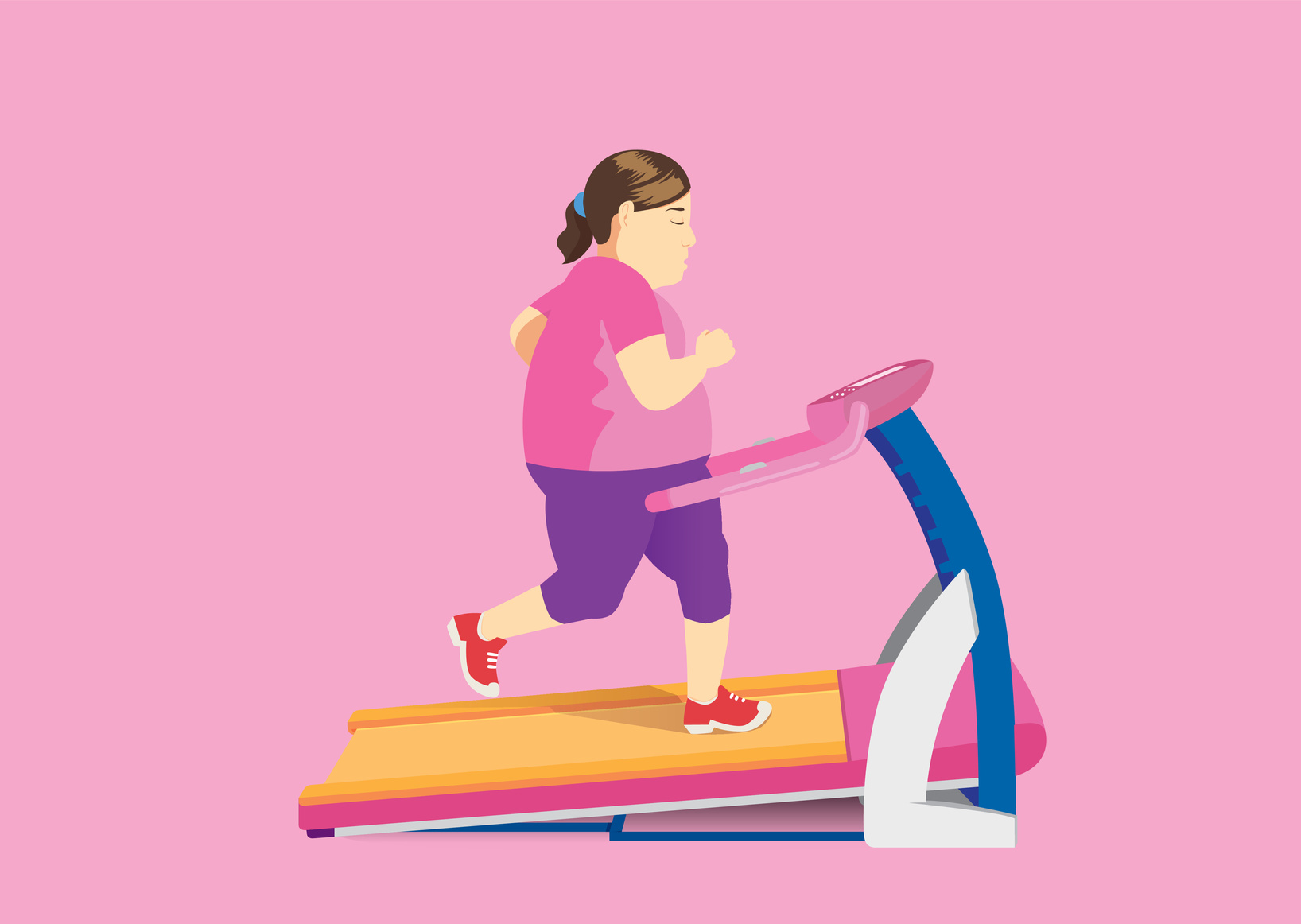Would you like to learn how to start running when overweight? Then this fat people running guide is what you’re looking for.
In today’s post, I’m going to show you to take up running when you’re fat (or really out of shape).
In this introduction to running for fat people, you’ll learn more about:
- Is Running bad if you’re Overweight?-
- Are you too fat to run?
- Is Running a Great Way to Lose Weight For Fat people?
- Things To Consider Before You Start A running Program When You’re Overweight
- The 8-Week Beginner obese running plan you Need
- Running Technique For the Overweight
- Finding Enough Motivation to start and keep training
- Achieving Your Weight Loss Goals
- And so much more.
Here we go…
Note – Looking for the best Beginner’s Guide To Running?
Then Check my Runners Blueprint System Here.
Fat People Running? FAQ
First things first, let’s address some of the most common questions I get asked by my friends and online about starting a running plan for the overweight.
Is Running Good For fat people?
Of course, yes!
Running regularly can help you lose weight and keep it under control, even though starting can be hard, especially if you haven’t done any exercise for a while.
Sure, running’s high impact nature can take a toll on your joints, but being (and staying) overweight poses more danger.
In fact, the extra weight can not only harm your joints but the rest of your body than running will ever do.
Here’s the full guide to how many calories do you burn running a mile.
Additional source – Does running burn stomach fat?
Am I To Fat to Run?
First of all, I don’t know you and I have no idea what you’re dealing with nor how much overweight you are.
But, all in all, yes, you can become a runner when you’re fat.
As long as you can walk, breathe, and sweat, everyone can become a runner with the right program.
You might be well behind the curb but you’ll eventually get there once you stick to training.
*Disclosure: This post may contain affiliate links that at no additional cost to you. I only recommend products I’d use myself and all opinions expressed here are our own.
Before You Start running
When Overweight
Before you take up running, there are a few things to consider and do to make sure you start on the right foot.
Let’s look at a few:
See Your Doctor
When you’re obese and want to start running (or become more active),
your first step should be a visit to your doctor.
It’s always better to be safe than sorry.
The last thing you want when starting an exercise plan is to hurt yourself.
During your visit, expect to undergo an extensive physical assessment.
Be honest to get the most accurate feedback and advice.
You’re only cheating yourself by not telling the truth.
Some of the issues to address include:
- Any history of a heart condition including blood pressure,
- Kidney health,
- Any respiratory diseases (including asthma or lung diseases),
- Joint issues (such as arthritis and trauma history),
- Current medication, and
- Any other pertinent issues in your medical history.
Once you get the green light from your physician it’s time to get going.
Proper Footwear
What I love the most about running is that you don’t need much to get started.
But, a pair of GOOD and PROPER running shoes is a must.
Run in ill-fitting shoes and you’ll make your body prone to Achilles Tendonitis, knee pain, shin splints, and other injuries.
How to find proper running shoes?
Simple.
Go to the nearest specialty running store, where trained staff will examine your foot type and your running gait.
This might be a bit expensive, but it’s worth the price in both the short and long term.
If you have a high BMI, consider consulting with an orthopaedist.
They will assess your lower limbs and help you choose (or even prescribe) the right shoes or orthotics.
Running Clothing For The Obese Runner
Choose technical gear (clothing specifically designed for runners) that’s comfortable, fits well, and is within your budget.
I highly recommend compression gear for fat runners.
These are typically made of lightweight fabric that pulls moisture away from the skin while providing extra support.
It also helps prevent swelling in the legs and arms and may reduce muscle soreness afterward.
Compression gear also helps with chafing.
In overweight runners, the underarms and inner thighs are the most vulnerable.
Chafing can cause rashes and raw skin, which is painful.
My recommendation?
A pair of tight spandex pants and a compression shirt.
The pants will keep your thighs from rubbing together, whereas the shirt can help those who feel self-conscious about the way they look while running.
Additional resource – How to find affordable running clothes
Note – Looking for the best Beginner’s Guide To Running?
Then Check my Runners Blueprint System Here.
A Running Plan For obese Beginners
Gotten the green light as well as basic running gear?
Great! It’s time to get started!
Let’s look at the actual steps you need to take in order to become a runner when you’re overweight.
Walk First
It might seem like the simplest exercise in the world, but to become a runner you’ll need to walk first.
In fact, walking is the perfect stepping stone to the world of running.
Walking is a low-impact exercise that can be done without making a huge commitment.
It helps you build the endurance and strength needed for intense exercise.
It’s also perfect for revealing any underlying issues.
For instance, if you experience knee pain while walking, take it up with your doctor, or at least be aware that something might be amiss.
Action Step
Start out by walking three to four times the first week and work your way up.
By four weeks in, you should be able to walk five to six times a week, each session lasting 50 to 60 minutes.
Here’s the ideal walking session.
- Begin your session with a 5-minute slow walk as a warm-up.
- Increase your intensity to a brisk walk pace and stick with it for at least 20 to 30 minutes.
- When you’re near the end of your walk, slow down then stretch your body to bring your heart rate down.
Important Note: Stay at this stage for as long as you have to.
Progress at your own pace.
Remember, you’re not competing with anybody other than yourself.
Just don’t give up.
Additional resource – Here’s your guide to running three miles a day.
Start Run/Walking
Once you can briskly walk for at least 60 minutes pain-free, start adding running segments to your sessions.
That’s what’s known as the run/walk method.
Action Step:
Start your session with a 10-minute brisk walk to get your heart rate up and blood flowing to the working muscles.
Next, jog for 20 to 30 seconds, then walk for 30 seconds to one full minute.
Repeat the cycle for 15 to 20 minutes, then wrap it up with a 5-minute walk as a cool down.
Once you’re comfortable jogging for one minute, increase your jogging time to 90 seconds.
Once 90-seconds feels like a breeze, increase it to two minutes.
Continue adding on in this manner.
Feel like too much to handle?
Don’t worry.
I’ve already provided you below with the exact overweight runner plan you need to get started.
Whatever you end up doing, make it a rule to gradually increase the time you spend running while taking less and less time for recovery.
Your goal is to be jogging for at least 20 minutes without too much huffing and puffing.
Additional Resource – Here’s how to much to run to lose weight
Listen to your Body
By far, this is the most important rule to abide by when you start running or any other form of exercise.
It’s okay—and expected—to experience a little muscle soreness the day after a workout, especially during the first few weeks.
After all, all good things happen when you step outside of your comfort zone.
You’ll be sweating, your heart rate will increase, and you’ll find it hard at times to keep at it.
But, if you’re doubling over in pain, you’re doing it wrong. Nizagara 100 https://tyackdentalgroup.com/nizagara
Slow down if you notice any of the following red flags:
- Nausea
- Intense chest pain
- Vomiting
- Severe muscle or joint pain
- Confusion
- Loss of balance
- Heart palpitations
- Dizziness or vertigo
Recover Well
If you run hard every day and sneeze at the importance of rest, then you’re flirting with disaster.
In fact, recovery is as important to progress as the training itself.
For starters, alternate hard training days with rest days.
In case you don’t want to have a whole day off, then cross train.
Ideal options for beginners include swimming, strength training, spinning, and yoga.
If it’s too much for you, simply call the day off.
Take more time if you need to, but stick to your plan.
Additional resource – How to combine keto and running
The 8-Week Running Plan for Obese Beginners
So how do you come up with a running plan when you’re fat?
It’s actually quite simple.
The following 8-week plan will have you follow a jog/walk training method.
Over the course of the upcoming weeks, you’ll gently shift the balance until you’re running more than you walk and past the point where you should be able to run for 20 to 30 minutes at an easy and slow pace.
Fat People Running Plan – Week One
- Monday – Run two minutes. Walk two minutes. Repeat 6 times.
- Tuesday—Run two minutes. Walk two minutes. Repeat 8 times.
- Friday—Run two minutes. Walk one minute. Repeat 6 times.
Fat People Running Plan – Week Two
- Monday —Run two minutes. Walk one minute. Repeat 8 times.
- Tuesday —Run two minutes. Walk one minute. Repeat 10 times.
- Friday—Run two minutes. Walk one minute. Repeat 8 times.
Fat People Running Plan – Week Three
- Monday—Run three minutes. Walk two minutes. Repeat 6 times.
- Tuesday—Run three minutes. Walk two minutes. Repeat 8 times.
- Friday—Run three minutes. Walk one minute. Repeat 6 times.
Fat People Running Plan – Week Four
- Monday—Run five minutes. Walk three minutes. Repeat 3 times.
- Tuesday—Run five minutes. Walk three minutes. Repeat 4 times.
- Friday—Run five minutes. Walk three minutes. Repeat 5 times.
Fat People Running Plan- Week Five
- Monday—Run five minutes. Walk two minutes. Repeat 5 times.
- Tuesday—Run five minutes. Walk two minutes. Repeat 5 times.
- Friday—Run five minutes. Walk one minute. Repeat 4 times.
Fat People Running Plan – Week Six
- Monday—Run five minutes. Walk one minute. Repeat 4 times.
- Tuesday—Run five minutes. Walk one minute. Repeat 5 times.
- Friday—Run seven minutes. Walk two minutes. Repeat 3 times.
Fat People Running Plan- Week Seven
- Monday —Run seven minutes. Walk two minutes. Repeat 3 times.
- Tuesday—Run seven minutes. Walk two minutes. Repeat 3 times.
- Friday—Run 10 minutes. Walk three minutes. Repeat two times.
Fat People Running Plan- Week Eight
- Monday—Run 10 minutes. Walk three minutes. Repeat two times.
- Tuesday—Run 12 minutes. Walk three minutes. Repeat two times.
- Friday—Run 20 minutes at an easy and slow pace.
For more structure, give this 30-day running challenge a try.
Running Technique
For the Obese Runners
I hate to break it to you but if your running technique isn’t dialed in from the get-go, you’ll definitely increase your chance of injury, especially when you’re an overweight beginner.
Sure, the human body is designed to run, but that doesn’t mean that running form comes naturally to most of us.
That’s why one of the most common mistakes beginners make is running with bad form.
Here’s what to keep in mind to improve your form:
- Run Tall. Stay upright, while keeping your back flat, spine straight, eyes gazing forward, and shoulders back. Imagine a cord pulling you up from your hair.
- Keep your head balanced, shoulders back and under your ears, and pelvis straight and neutral. Avoid sticking your butt out or arching your back.
- Engage your core muscles. A strong core is key to efficient running.
- Create flow. Keep moving your elbows forward and backward in tune with your lower body.
- Stay relaxed. Keep your body relaxed, especially the face, neck shoulders, and hands.
- Seek help. Schedule a few runs with a coach or take a class to work on proper form.
Additional resource – How to start running with your dog
How to Start Running When
Overweight – Motivation
Taking up running is only the first step.
To keep moving forward you’ll need a few tricks up your sleeves to help improve your running motivation.
Let’s look at a few.
Do it For Yourself
No doubt you’ll draw a lot of attention when you’re a fat runner, and some of it might not be positive.
Not all people are supportive, and you shouldn’t expect a high-five from everyone you meet on the road.
As a rule, ignore the haters, because (in the words of Taylor Swift), “Haters going to hate hate hate.”
That’s all they do, 24/7.
Don’t let the mind games and name-calling interfere with the process, and please, don’t let anyone, but you dictate how you should be living your life.
Keep your focus on you and nobody else.
Cultivate a positive attitude no matter what happens, even if your workouts suck.
(They are supposed to suck.)
Additional resource – Here’s how to lose 100 pounds.
Don’t Compare
One of the worst traps you can fall into while running when you’re overweight is comparing yourself to everyone else.
This is actually one of the reasons I avoided running with runners for a very long time.
I always felt inferior when the other runner was faster.
What a fool I was.
Instead of looking at it as an opportunity to challenge myself and improve, I ran in the opposite direction.
Here’s the truth.
If you want someone to compare yourself to, think of the kind of a runner (and person) you were a year ago versus who you are today.
Sounds too cliché? Yes, but it does work.
Set the Right Goals
When setting goals, what most runners do is shoot for the stars.
Sooner or later most fail, then get discouraged and defeated.
Instead, set realistic goals, then lay out the steps you need to take to achieve them.
One goal at a time.
You’ll feel good when you hit that milestone, then set another and achieve that one too.
Remember that you carry more weight than others, so do things at your own speed.
Additional Resource – When it’s the best time to run
Visualize Your Goal
Want to improve the odds of achieving your running goals?
Try visualizing them.
Visualization, also known as guided imagery or mental rehearsal, is simple.
It involves seeing an image of yourself in your own mind’s eye as the type of a runner (and person) you want to become.
Picture yourself achieving your running goals as if it’s already happened.
Go through everything: what you’ll see, hear, and how you’ll feel.
Replay this picture over and over in your mind.
Doing this will not only make you feel more confident but also help you to act more confidently.
Here’s How to measure body fat percentage
Build the Habit
Want to make running a part of your daily life?
Then turn it into a habit.
Schedule your runs the same way you schedule an important work meeting or a vital doctor’s appointment.
Use a daily calendar, your smartphone’s reminder app, or to block out the time you need for the run.
Use multiple alarms if you needed.
Stick to the “three workouts per week” rule for at least 12 weeks.
If you can work up to 16 weeks, then you’re good, since most healthy lifestyle changes take that long to become ingrained into a daily routine.
Additional Resource – Here’s how to plan a running route.
Achieving Your Weight
Loss Goals
Running does burn a lot of calories, but, as I already mentioned, it doesn’t guarantee weight loss without a good diet.
In fact, a common question I get a lot from my reader is an explanation for the sudden weight gain after taking up running.
Apply the following strategies to make sure that your running sweat wasn’t for vain:
Keep Track
The reason number one for gaining weight when running is to eating too much.
Here’s the truth.
You cannot outrun a crappy diet—no matter how fast you can be.
Instead, keep track of your calorie intake and make sure you’re not consuming excess calories.
Additional resource – How to start running at 50
Eat Healthily
Calories are not created equal.
To make sure you’re making the most out of your food choices, make sure to eat clean the entire.
Avoid cheat meals during your first few weeks.
Make sure to consume just enough amount of complex carbs, lean protein, and healthy sources of fat.
Here’s a list of super foods for runners.
Avoid Sugars
Sugar founds in processed foods is the ultimate diet saboteur.
In fact, research has linked the increased intake of sugar in the American diet to the soaring obesity levels we’re dealing with today.
High intake also contributes to Type II diabetes, cardiovascular disease, tooth decay—the list is long and terrifying.
Additional resource – 30 Keto recipes for low carb eating
Eat Plenty of Lean Protein
Research says that a higher protein intake helps maintain consistent blood sugar, which is essential for avoiding cravings.
One study revealed that subjects who had protein at breakfast reported fewer cravings for junk food later in the day.
Good sources of lean protein include chicken, beef, eggs, raw cheese, and nuts.
Additional link – Slow running vs fast running for weight loss
Running plan for obese beginners – The Conclusion
There you have it If you’re looking on advice on how to start running when overweight, then my running plan is perfect for you. The rest is just details.
Thank you for stopping by.
Keep training strong













































































